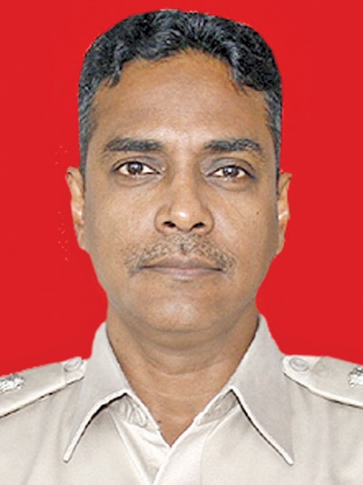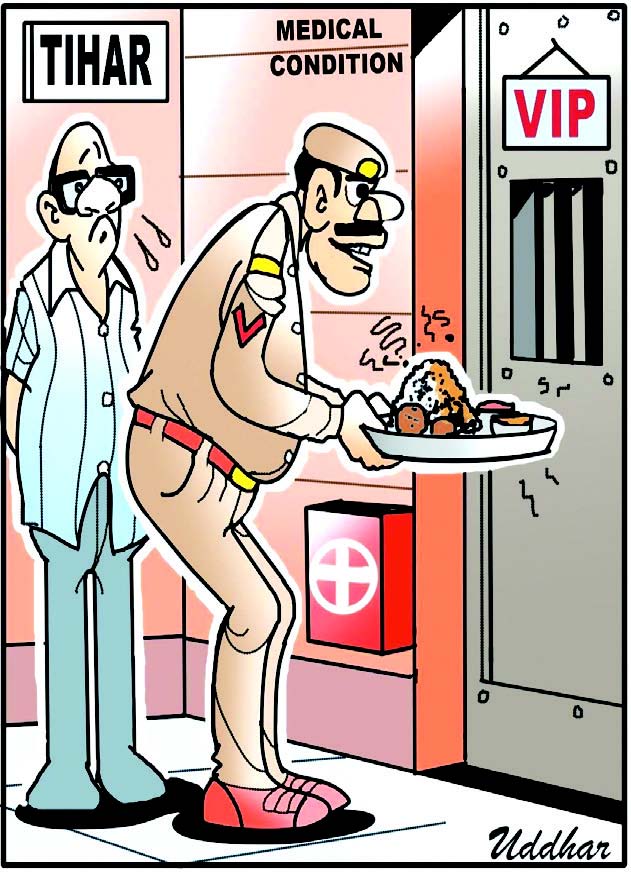
HERALD: While a lot is spoken about Goa Police being on the frontline in the fight against COVID-19, how has IRB been contributing?
BOSCO GEORGE: As far as the fight against the COVID-19 is concerned, we are jointly operating on the frontline with the Goa Police Force. We have provided around 183 policemen along with Officers to the South district and around 154 policemen and 6 Police Inspectors to the North district who are working under the operational command of District Superintendents of Police (SPs). These policemen are deployed at border Check-Posts, hospitals, railway stations and performing nakabandi duties and duties related to controlling migrants and now around 3 platoons are being utilized at containment zone at Vasco. Additionally, we are providing around 100 policemen to districts as and when required by the district SPs during the movement of trains in order to control the migrants.
HERALD: What are the precautions IRB is taking?
GEORGE: Our staff has undergone special briefing session by the doctors from the Health Department at our camps, where they briefed our staff how the virus is spreading and the precautionary measures to be taken. So also, we have introduced and installed hands-free sanitising and hand wash system at our camps. We also do thermal gun screening at our camps and offices and the in-charge officials have been given instructions to keep close vigil on policemen under them in regard to their health issues, internal camp cleanliness and also hygiene is being closely monitored.
HERALD: How do you describe the switch over before the COVID-19 pandemic and thereafter till date?
GEORGE: Till the end of the last year, we were doing our routine duties but the burst of this virus in China and thereafter in India has made us stand on the toes to fight against the virus in terms of policing. The calling of Janata Curfew on March 22 and thereafter lockdown has totally changed the type of duties of our force. They were on the frontlines to restrict the movement of public and also made awareness in the minds of general public to fight against this unwanted virus. The contribution of IRBn is highly appreciable during these last two and half months.
HERALD: What made you name the four IRB camps after Goa’s history and hills?
GEORGE: One IRB camp is at Ribandar, second at Valpoi, third at Nanoda Valpoi and the fourth at Sanguem which was inaugurated recently. Hardly few of our young generation know about the Goan history and its importance. So, I had it in mind that somehow we should contribute in going back to historical happenings in Goa. So we thought of naming our camps with names having historical and geographical importance.
We thought of naming Ribandar camp as ‘Kadamba’, which is having historical significance as it has derived from Kadamba dynasty who ruled Goa from 10th to 14th Century. The kingdom's capital was ‘Gopakapattanam,’ which is now known as Goa Velha. The area where Ribandar Camp is located is known as Kadamba Plateau.
‘Wagheri’, for the Navodaya Valpoi camp. Wagheri is the highest peak in Sattari taluka. It was habitat of Ponthera Tigers or Stripped Tigers. Hence it is named as Wagheri.
‘Sosogad’, for Nanoda camp in Valpoi. Sosogad is the highest peak in Goa, located in Sattari taluka. It is a part of Western Ghats mountain range.
‘Chadreshwar’ camp in Sanguem. The Chandreshwar or Chandranath Parvat is famous mountain peak in South Goa, situated about 350 meters high of Sea-level. This place existed since 8th century during the Bhoj dynasty, who ruled the said region.
HERALD: What’s the USP of each camp?
GEORGE: All the locations have been identified for specific purpose.
The Kadamba camp has an advantage as it is situated close to the capital city, where most of the policing duties are required and staff can be mobilised within the least possible time.
The Wagheri camp at Navodaya Valpoi takes into consideration the space scarcity in Panjim and also meets the force requirement in Bicholim and Ponda taluka.
The Sosogad at Nanoda camp is as an ideal place for conducting refresher and other training related courses for IRBn.
The Chandreshwar camp at Sanguem is to solve the hardships faced in mobilising the force as and when required by the South Goa SP, due to traffic congestion and long distance. This camp eased the mobility and response time of the staff in meeting law and order needs for the district. This camp is also a welfare measure for the police staff hailing from South Goa.
